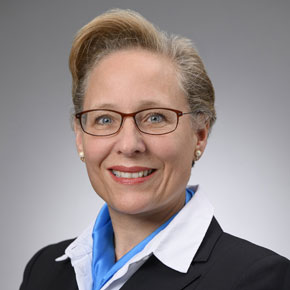 Dr. Franziska Lieselotte Ohnsorge
Chief Economist, South Asia, The World Bank
Franziska Ohnsorge is the World Bank Chief Economist for South Asia. In this role, she is responsible for leading the research program on key economic issues in South Asia to inform the policy debate and World Bank lending. Before starting this position, she was the Manager at the Development Economics Vice Presidency where she spearheaded the flagship Global Economic Prospects report. Prior to joining the World Bank, Franziska Ohnsorge worked in the Office of the Chief Economist of the European Bank for Reconstruction and Development and at the International Monetary Fund. Her research has been featured in peer-reviewed journals as well as policy publications and has covered a wide range of topics in international macroeconomics and finance, including debt and financial crises, inflation and monetary policy, as well as growth and informal labor markets. Her work has been widely cited, including in the Economist, the Wall Street Journal, and the Financial Times. She holds a Ph.D. from the University of Toronto.
Dr. Franziska Lieselotte Ohnsorge
Chief Economist, South Asia, The World Bank
Franziska Ohnsorge is the World Bank Chief Economist for South Asia. In this role, she is responsible for leading the research program on key economic issues in South Asia to inform the policy debate and World Bank lending. Before starting this position, she was the Manager at the Development Economics Vice Presidency where she spearheaded the flagship Global Economic Prospects report. Prior to joining the World Bank, Franziska Ohnsorge worked in the Office of the Chief Economist of the European Bank for Reconstruction and Development and at the International Monetary Fund. Her research has been featured in peer-reviewed journals as well as policy publications and has covered a wide range of topics in international macroeconomics and finance, including debt and financial crises, inflation and monetary policy, as well as growth and informal labor markets. Her work has been widely cited, including in the Economist, the Wall Street Journal, and the Financial Times. She holds a Ph.D. from the University of Toronto.
 Abdul Haque Chang
Assistant Professor – Social Sciences & Liberal Arts
Abdul Haque Chang
Assistant Professor – Social Sciences & Liberal Arts
Institute of Business Administration (IBA), Karachi
 Adam Abdullah
Assistant Professor- Social Sciences & Liberal Arts
Adam Abdullah
Assistant Professor- Social Sciences & Liberal Arts
Institute of Business Administration (IBA), Karachi
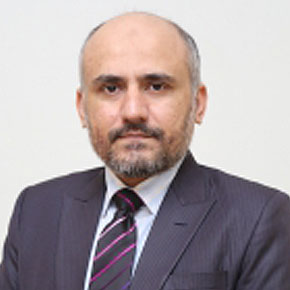 Adnan Haider
Professor
Adnan Haider
Professor
Institute of Business Administration (IBA), Karachi
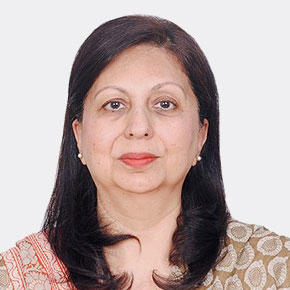 Aliya Hashmi Khan
Former Dean Social Sciences & Director School of Economics
Aliya Hashmi Khan
Former Dean Social Sciences & Director School of Economics
Quaid-i-Azam University
Dr. Aliya Hashmi Khan is a Professor of Economics (Retired), former Director School of Economics and former Dean Faculty of Social Sciences, Quaid-i-Azam University, Islamabad, Pakistan. She has been a Member of the Prime Minister's Economic Advisory Council (EAC), a Member of the Monetary Policy Committee, State Bank of Pakistan, a Member of the Labour Expert Group (LEG) under the "Ehsaas" Social Protection Program, Government of Pakistan and Technical Expert/ Labour Economist at the Informal Economy Workers (IEW) Unit, Ministry of Poverty Alleviation & Social Safety, Government of Pakistan. She has also served as Chair of the National Poverty Estimation Committee, Planning Commission, Government of Pakistan. She is a Member Syndicate of the Rawalpindi Women University and serves on the Boards of Aurat Foundation, National Institute of Banking & Finance (NIBAF) SBP and on the Board of the Bank of Khyber. She was awarded the President's Medal – Mohtarma Fatima Jinnah 2010 in the category of Higher Education. The citation reads " In recognition of services rendered for economic empowerment of women by way of teaching and research".
 Asma Hyder
Professor of Economics & Dean SESS
Asma Hyder
Professor of Economics & Dean SESS
Institute of Business Administration (IBA), Karachi
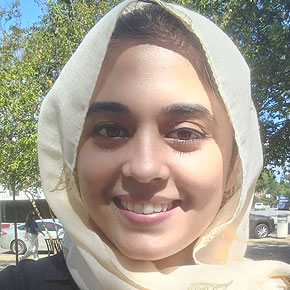 Ayesha Zia
Assistant Professor
Ayesha Zia
Assistant Professor
Institute of Business Administration (IBA), Karachi
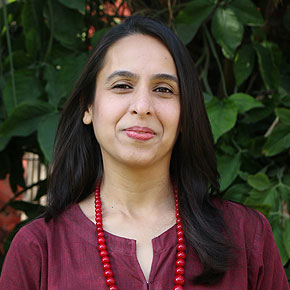 Hadia Majeed
Associate Professor and Chair of Economics Department
Hadia Majeed
Associate Professor and Chair of Economics Department
Lahore University of Management Sciences (LUMS) Dr. Hadia Majid is Associate Professor and Chair of the Department of Economics at LUMS. Her research agenda considers the impact of monetary and public resource constraints on individuals in Pakistan with a special focus on women's access to decent, empowering work. She has published in international journals and is currently editing a book titled Gender at Work in Pakistan. She has received grants from several agencies including ESRC-DFID, Oxfam, IDRC, IGC, IFPRI among others and has acted as a consultant for numerous government and non-governmental agencies on gendered labor market outcomes. A Fulbright scholar, she has a PhD from The Ohio State University and MSc from University of Warwick.
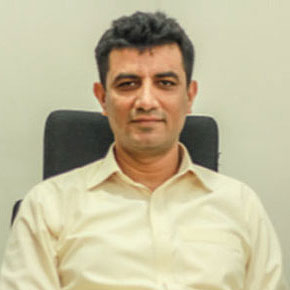 Junaid Alam Memon
Professor and Director CBER
Junaid Alam Memon
Professor and Director CBER
Institute of Business Administration (IBA), Karachi
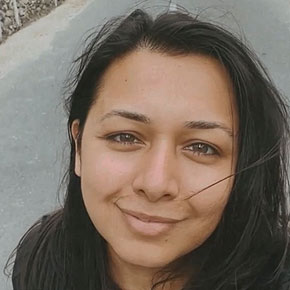 Rabia Jaffar
Behavioral Coach, Dept of Family medicine
Rabia Jaffar
Behavioral Coach, Dept of Family medicine
Aga Khan University Hospital
Dr. Rabia Jaffar is a clinical psychologist and has extensive experience in clinical therapy and practice at several institutions within Karachi. She is currently a behavioral coach at the Department of Family Medicine at Aga Khan University Hospital, Karachi.
 Ratna Sahay
Former Special Advisor to The Managing Director
Ratna Sahay
Former Special Advisor to The Managing Director
International Monetary Fund (IMF) Ratna Sahay was a Special Advisor to the Managing Director at the International Monetary Fund (IMF), Wahington DC, USA until March 2023. In her last assignment she spearheaded the IMF's first strategy for mainstreaming gender in its activities that cover 190 countries. During her 33-year career at the IMF she worked in several regional and functional department, leading mission to several countries, and heading policy projects in the areas of monetary policy, exchange rate policy, capital account, financial development, financial inclusion, and gender. She is currently an Honorary Professor at the National Council of Applied Economic Research in Delhi (India) and a Non-Resident Fellow at the Center for Global Development in Washington DC (USA). She is also serving on working groups of the G-20 and the World Economic Forum, is a member of the External Advisory Panel on Gender at the IMF, and a jury panel member for the Alliance of Financial Inclusion. She has published widely in leading journals. She has taught at Delhi University and New York University and holds a Ph.D. in Economics from New York University, New York.
 Reinout Wiers
Co-Director, Centre for Urban Mental Health
Reinout Wiers
Co-Director, Centre for Urban Mental Health
University of Amsterdam, Amsterdam University Medical Centre Prof Reinout Wiers is a full professor of developmental psychopathology at the University of Amsterdam, internationally acclaimed for his work on assessing and changing implicit cognitive processes in addiction. He has published over 400 international papers, several books, and book-chapters. He has won the VIDI (2002) and VICI (2008) research grants from the Dutch National Science Foundation (N.W.O.) for research on implicit cognition and addiction and co-edited the Handbook of Implicit Cognition and Addiction (SAGE, 2006). He has been senior editor of Addiction, the no. 1 ranked journal in the field of substance abuse, since 2009, and serves on the editorial board of several other Addiction journals. He co-chairs the interdisciplinary Centre for Urban Mental Health at the University of Amsterdam.
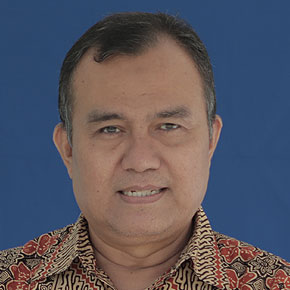 Saiful Mahdi
Assistant Professor of Statistics
Saiful Mahdi
Assistant Professor of Statistics
Universitas Syiah Kuala, Banda Aceh
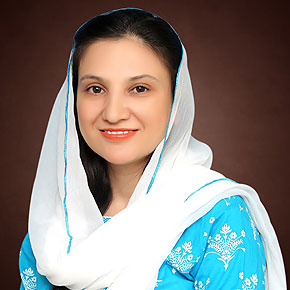 Saima Saif
Assistant Professor, Dept of Social Sciences & Liberal Arts
Saima Saif
Assistant Professor, Dept of Social Sciences & Liberal Arts
Institute of Business Administration (IBA), Karachi
Dr. Saima Saif is Assistant Professor at Department of Social Sciences and Liberal Arts at Institute of Business Administration. She has a PhD in clinical psychology and is a practicing clinical therapist.
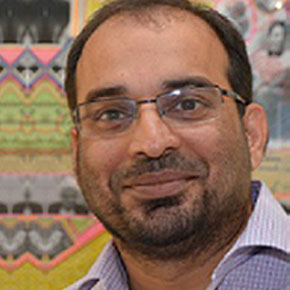 Sajjad Haider
Assistant Professor
Sajjad Haider
Assistant Professor
Institute of Business Administration (IBA), Karachi
 Shameel Khan
Consultant Psychiatrist, Compassion Couch; Co-Founder & Director Synapse Karachi
Dr. Shameel Khan is a consultant psychiatrist and founder of Compassion Couch Psychiatry & Therapy Clinic, Karachi. He did his specialist training in psychiatry from Cambridge and East of England Deanery. In the past, he has served as Assistant Professor and post-graduate training program director for Psychiatry at Aga Khan University. His clinical experience includes both outpatient as well as inpatient work within the UK and Pakistan. His clinical interests include personality difficulties, treatment-resistant depression, eating disorders, and addictions. He has a special interest in Psychoanalytic psychotherapy and Group analysis as well as their applicability within the socio-psychological fabric of Pakistan.
Shameel Khan
Consultant Psychiatrist, Compassion Couch; Co-Founder & Director Synapse Karachi
Dr. Shameel Khan is a consultant psychiatrist and founder of Compassion Couch Psychiatry & Therapy Clinic, Karachi. He did his specialist training in psychiatry from Cambridge and East of England Deanery. In the past, he has served as Assistant Professor and post-graduate training program director for Psychiatry at Aga Khan University. His clinical experience includes both outpatient as well as inpatient work within the UK and Pakistan. His clinical interests include personality difficulties, treatment-resistant depression, eating disorders, and addictions. He has a special interest in Psychoanalytic psychotherapy and Group analysis as well as their applicability within the socio-psychological fabric of Pakistan.
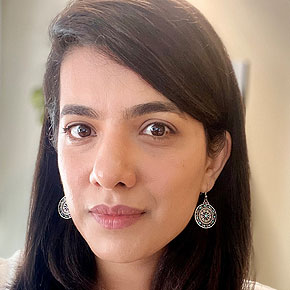 Sundus Saleemi
Senior Researcher- Center for Development Research (ZEF)
Sundus Saleemi
Senior Researcher- Center for Development Research (ZEF)
University of Bonn Sundus Saleemi is a Senior Researcher at the Center for Development Research of the University of Bonn, Germany. Her research interests are gender and feminist economics. She did her doctorate at the University of Bonn. Her doctoral dissertation, "The Empowerment of Women and Girls in Rural Pakistan; Migration, Decision-Making and Consciousness" explored the impact of changes in women's decision-making role in households on the gendered allocation of household expenditure for children's education. She has published in peer-reviewed journals including Feminist Economics. Her current research explores the impact of women's time burdens on their well-being and the well-being of their children in three countries in Africa. Previously, she worked as a Staff Economist at the Pakistan Institute of Development Economics (PIDE). She is a regular contributor German-English bilingual publication, Development and Cooperation. Her columns have also appeared in the Express Tribune Blogs and Jamhoor. She did her Master's and MPhil in Economics from the School of Economics, Quaid-I-Azam University, Islamabad.
 Tanzil Shafique
Assistant Professor, School of Architecture
Tanzil Shafique
Assistant Professor, School of Architecture
University of Sheffield
Dr. Tanzil Shafique is a Lecturer in Urban Design and Co-Director of the Postgraduate Programmes at The University of Sheffield School of Architecture. He is also an Associate of the Urban Institute. Previously, he taught at the University of Melbourne and the University of Arkansas. Tanzil's research looks at southern urbanism, pluriversal architectural practice and informal planning, mainly focusing on the ongoing adaptation and transformation due to climate change led by the local citizens. He received a British Academy grant in 2021 to convene Decolonial Cities Collective, a transdisciplinary knowledge common. Additionally, Tanzil co-convenes the Platform for Just Housing (Najjyo Abashon Moncho or NAM) and Bangladesh Climate Alliance, which work towards housing and climate justice with local activists and citizens. Tanzil's upcoming monograph is titled: City of Desire: An Urban Biography of the Largest Slum in Bangladesh (Bloomsbury, 2024).
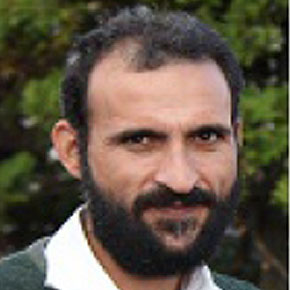 Wali Ullah
Professor
Wali Ullah
Professor
Institute of Business Administration (IBA), Karachi
 Abida Naurin
Pakistan Institute of Development Economics (PIDE)
Abida Naurin
Pakistan Institute of Development Economics (PIDE)
Impact of Oil Price and Its Volatility on CPI of Pakistan: Bivariate EGARCH Model
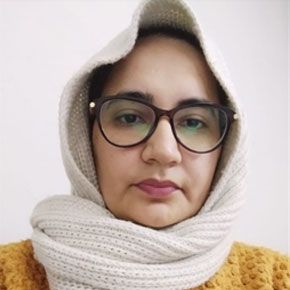 Aisha Irum
Pakistan Institute of Development Economics (PIDE)//NIPS
Aisha Irum
Pakistan Institute of Development Economics (PIDE)//NIPS
Expansionary Fiscal Contraction Hypothesis: An Evidence from Pakistan
 Amir Hamza Marwan
Institute of Business Administration (IBA)
Amir Hamza Marwan
Institute of Business Administration (IBA)
Representation of the Fall of Kabul 2021 in Pakistani and Afghan Media: Examining Counterterrorism, Elite Officials, and Local People's Perspectives.
 Bharat Diwakar
Indian Institute of Technology Roorkee
Bharat Diwakar
Indian Institute of Technology Roorkee
Constructing Quality-adjusted Human Capital and its Distribution Across Countries
 Farah Naz
Pakistan Institute of Development Economics (PIDE)
Farah Naz
Pakistan Institute of Development Economics (PIDE)
An evaluation of comparative advantage of domestically produced edible oil crops: challenges & opportunities
 Fizza Batool
SZABIST University
Fizza Batool
SZABIST University
Foreign Policy under Civilizational Populists in India, Pakistan and Turkey
 Gaetano Perone
University of Pisa
Gaetano Perone
University of Pisa
The relationship between labor market institutions and innovation in 174 European regions over the period 2000–2015
 Gul Muhammad Rind
Sukkur IBA University
Gul Muhammad Rind
Sukkur IBA University
Examining the Influence of Household Factors on Educational Achievement Inequality: An Analysis of ASER Data in Pakistan
 Hadiqa Riaz
Bahria University
Hadiqa Riaz
Bahria University
Tourism for All: Assessing the Impact of Accessible Tourism on the Sustainability of Local Communities
 Hafsah Batool
Lahore college for women university Digital Literacy and Inclusive Growth: Examining Digital Empowerment of Female Students in Lahore
Hafsah Batool
Lahore college for women university Digital Literacy and Inclusive Growth: Examining Digital Empowerment of Female Students in Lahore
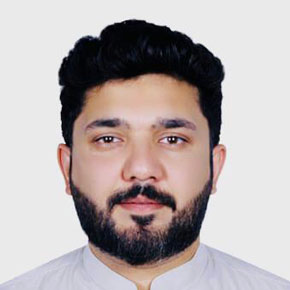 Hamza Rashid
Institute of Business Studies, Kohat University of Science & Technology Leveraging
Hamza Rashid
Institute of Business Studies, Kohat University of Science & Technology Leveraging
Student-Generated Social Media Data for Higher Education Marketing in Pakistan: A Netnographic Approach to Enhance Student Engagement and Branding
 Hana Zahir
Lahore University of Management Sciences (LUMS)
Hana Zahir
Lahore University of Management Sciences (LUMS)
Why do inheritance reforms not increase women's access and control over land? Evidence from Punjab (Pakistan)
 Jaweriya Naz
NED University
Jaweriya Naz
NED University
Analysis of Sectoral Energy Demand in Pakistan
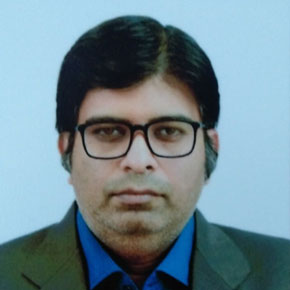 Jazib Mumtaz
FPCCI Policy Research Unit
Jazib Mumtaz
FPCCI Policy Research Unit
Analyzing Household Income Inequality: A Subgroup Decomposition of Generalized Entropy Measures
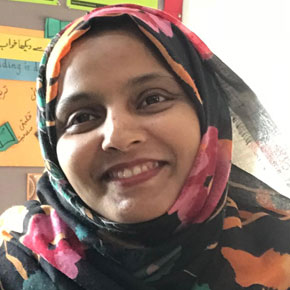 Kashfia Latafat
Generation's School Political Party Negotiations with Non-Political Actors: A Case Study of Pakistan
Kashfia Latafat
Generation's School Political Party Negotiations with Non-Political Actors: A Case Study of Pakistan
 Lucky Bizenjo
Institute of Business Administration (IBA)
Lucky Bizenjo
Institute of Business Administration (IBA)
Relationship between Human Capital and Urban Growth
 Madiha Hussaini
SZABIST University
Madiha Hussaini
SZABIST University
Resource Scarcity and Sustainability: Exploring the WEF Nexus
 Minhas Majeed Khan
University Of Calicut
Minhas Majeed Khan
University Of Calicut
Understanding the Non-Traditional Security Dimensions: Cyber Threat Landscape in Pakistan
 Muhammad Aftab
COMSATS University Islamabad
Muhammad Aftab
COMSATS University Islamabad
Financial integration and Exchange Market Pressure
 Dr. Muhammad Faisal Ali
Pakistan Institute of Development Economics
Dr. Muhammad Faisal Ali
Pakistan Institute of Development Economics
Accentuating the significance of individual opinions and indigenous knowledge about various environmental issues in Pakistan
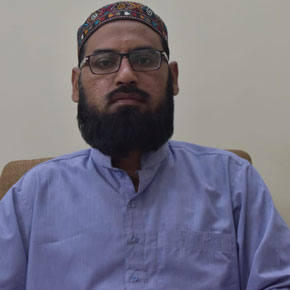 Muhammad Kamran
University of Loralai
Muhammad Kamran
University of Loralai
Evidence from Factor Analysis of Sarsani's (1999) Teachers' Creativity Promotion Scale at the university level
 Muhammad Omer
State Bank of Pakistan (SBP)
Muhammad Omer
State Bank of Pakistan (SBP)
Evaluating the Impact of Withdrawal of Telegraphic Transfer (TT) Charges Reimbursement on the Remittances from the Kingdom of Saudi Arabia (KSA)
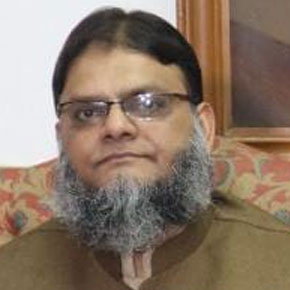 Muhammad Rasheed Arshad
University of Punjab
Muhammad Rasheed Arshad
University of Punjab
De-territorializing Linearity of Contemporary Globalization: A Decolonial Appraisal of Traditionalists in a Glocalized World
 Muhammed Salim Anappattath
M.E.S Mampad College (Autonomous)
Muhammed Salim Anappattath
M.E.S Mampad College (Autonomous)
Kerala's International Tourism Demand: An Inquiry Into The Validity Of The Standard And Regular Determinants
 Muhammad Zeshan
Pakistan Institute of Development Economics (PIDE) Trade, Industry and Competition in Pakistan
Muhammad Zeshan
Pakistan Institute of Development Economics (PIDE) Trade, Industry and Competition in Pakistan
 Rashid Ali Baloch
Indus University
Rashid Ali Baloch
Indus University
Gender Differences in Teacher Efficacy: The Mediating Effect of Using Affective Outcomes in Teaching
 Riffat Iqbal
Information Technology University
Riffat Iqbal
Information Technology University
Relationship of Educational Stress and Self-Compassion with Psychological Problems in Adolescents
 Ruhma Anjum
Information Technology University
Ruhma Anjum
Information Technology University
Social media, Cultural Heterogenization, and Consumer Behavior in Pakistan: A Study of Generation Z and Generation X
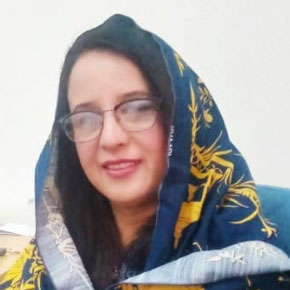 Sadia Batool
Karakoram International University
Sadia Batool
Karakoram International University
Gender Differences in Teacher Efficacy: The Mediating Effect of Using Affective Outcomes in Teaching
 Salman Zaffar
Institute of Business Administration (IBA)
Salman Zaffar
Institute of Business Administration (IBA)
Computational Calculation of Sovereign Default Probabilities: Pakistan's Case
 Sana Younas
National University of Sciences and Technology (NUST)
Sana Younas
National University of Sciences and Technology (NUST)
Exploration of Perceptions of Physicians Regarding Decision-Process Uncertainty in Obstetrics and Gynaecology
 Sara
Mehran University of Engineering and Technology
Sara
Mehran University of Engineering and Technology
Economic Policy Uncertainty and Stock Portfolio Optimization: Cross Country Wavelet-Based Approach
 Sara Shabbir
Institute of Professional Psychology
Sara Shabbir
Institute of Professional Psychology
Parentification and Machiavellianism among young adults: Role of Gender in a Correlational Comparative Survey
 Shabana Kishwar
Institute of Business Administration (IBA)
Shabana Kishwar
Institute of Business Administration (IBA)
Revamping Development Planning and Budgeting in Pakistan
 Shahnila Tariq
University of Management and Technology
Shahnila Tariq
University of Management and Technology
Resilience, Mental Toughness and Mental Wellbeing in Police Officers
 Shahid Razzaque
Pakistan Institute of Development Economics (PIDE)
Shahid Razzaque
Pakistan Institute of Development Economics (PIDE)
Choice of Contract and Repayment Rates in Group Lending with Mutual Decision Making. A Microfinance Experiment from Pakistan
 Shazia Kousar
Lahore college for women university Lahore
Shazia Kousar
Lahore college for women university Lahore
Globalization, Climate Variability and Food Security in Pakistan: The Moderating Role of Population Density
 Sohail Ahmad
COMSATS University
Sohail Ahmad
COMSATS University
Investigating the Global Impact of the Islamic State (IS) and the Rise of Non-State Actors in Modern Security
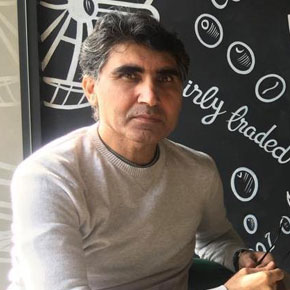 Syed Irfan Ashraf
University of Peshawar
Syed Irfan Ashraf
University of Peshawar
Parachuting in: CNN's Clarissa Ward in Myanmar and Afghanistan
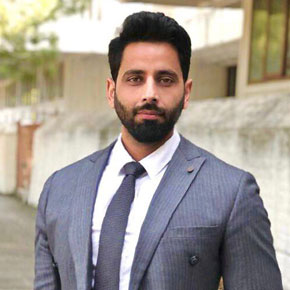 Syed Kafait Hussain Naqvi
University of Kotli
Syed Kafait Hussain Naqvi
University of Kotli
Demand Analysis of Energy Mix in District Kotli Azad Jammu and Kashmir, Pakistan
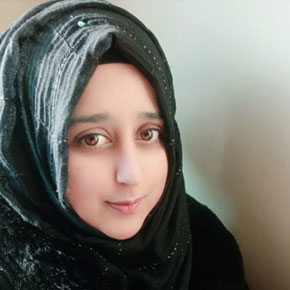 Isma Anum
National University of Modern Language
Isma Anum
National University of Modern Language
How Political Behavior is Influenced by Social Cleavage and Media Usage?
 Prof. Dr. Leef H. Dierks
Luebeck University of Applied Sciences
Prof. Dr. Leef H. Dierks
Luebeck University of Applied Sciences
Inflation, Monetary Policy, and the Sacrifice Ratio
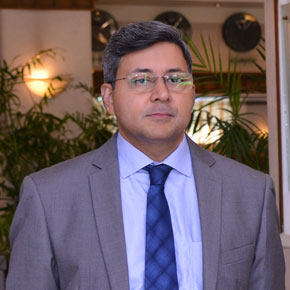 Umer Khalid
Policy Research Innovation Development and Education (PRIDE)
Umer Khalid
Policy Research Innovation Development and Education (PRIDE)
Fourth Industrial Revolution (4IR) and changing World of Work: A Case Study of the Services Sector of Pakistan
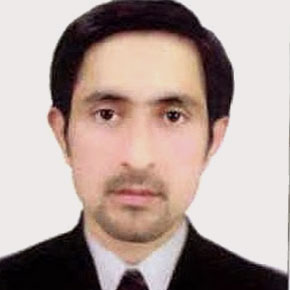 Wajid Ali
University of Perugia
Wajid Ali
University of Perugia
Appraising economic development: Estimating sub-national GDP for Pakistan through nightlights.
 Zahid Pervaiz
Department of Economics, National College of Business, Administration and Economics (NCBA&E), Lahore Inequalities of Opportunities: Some Insights from Pakistan
Zahid Pervaiz
Department of Economics, National College of Business, Administration and Economics (NCBA&E), Lahore Inequalities of Opportunities: Some Insights from Pakistan
 Zia Ur Rahman
Ghazi University, Dera Ghazi Khan Food-Water-Energy Nexus
Zia Ur Rahman
Ghazi University, Dera Ghazi Khan Food-Water-Energy Nexus
in the perspective of green revolution, green energy, Legal and Institutional Framework: A Killian Based Adjusted bootstrap approach